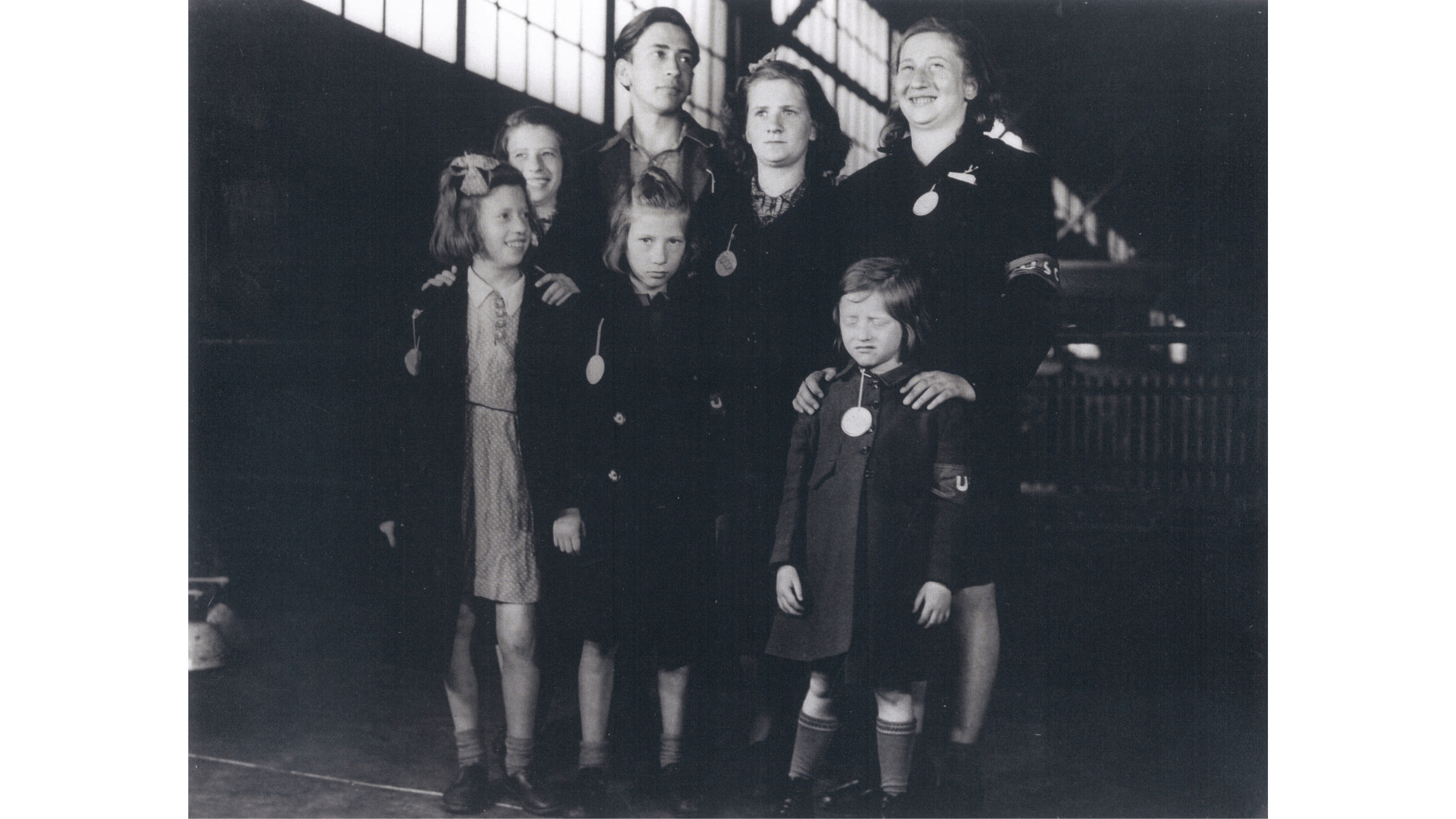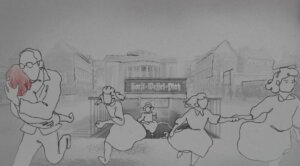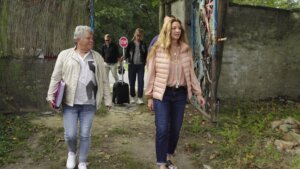How seven siblings survived the Holocaust — and how the next generation is telling their story
In an emotional documentary, Beth Lane highlights the importance of not being complicit.

The Weber Siblings at the New York Harbor, May 20th, 1946; Front Left to Right: Renee, Judith, Bela Back Left to Right: Gertrude, Alfons, Senta, and Ruth. Courtesy of United States Holocaust Memorial Museum
Alfons Weber recorded every detail of how he and his six siblings survived the Holocaust, and distributed copies of the typed memoir at a family reunion in 1996. His niece, actress Beth Lane, couldn’t bring herself to read it for years.
“Every single sentence is just filled with so much,” Lane told me in a Zoom interview. “You have to really take each sentence and each paragraph as a tone poem all by itself.”
Born and raised in Berlin, the seven Weber siblings miraculously survived the Holocaust and immigrated to the United States, the largest group of Jewish siblings known to remain unseparated.
Lane originally made plans to go back to Germany with her uncle, but he passed away in 2016 before they could make the trip. Instead, she went with her mother, Bela, the youngest of the seven siblings, in 2017. While in Worin, Germany, where the Weber siblings had spent months hidden on a farm, Lane realized she had to make a film about her family’s story.
“If I don’t, the story will get lost,” Lane recalled thinking. “There are too many extraordinary and wonderful things that happened during such a terrible time that we have to celebrate the upstanders who were not complicit in what the law was demanding of them.”
Lane, a performer and acting coach is making her directorial debut with UnBroken: Would You Hide Me? She tells the siblings’ story through their own words’, archival footage, animation, and video of herself retracing their journey. She travels to pivotal locations: the Schmidt farm in Worin, where family friend Arthur Schmidt hid the children after learning they were registered to be sent to Auschwitz; the Sacred Heart Catholic Church where they were baptized, as their father believed conversion would help their chances of escaping the Nazis; and the Indesrsdorf nunnery where they lived with other displaced children before they were sent to America. Unfortunately, once they reached the States, the siblings were separated and did not all reunite for almost forty years.

It’s an incredibly moving film about people’s resilience in dark times. The multimedia elements blend seamlessly together and help immerse you in both Lane’s travels and the tales of the Weber children. Lane explained that the use of animation created a more childlike perspective of the memories, placing the viewer in the perspective of the Weber children; it was also useful for portraying events that the siblings remembered differently.
“My response as a filmmaker and as a niece was, ‘Well, that’s true for her and it might not be true for you,’” she said. “So rather than having them talk to us on camera, let’s let the world of animation, which invokes imagination, take that place and let the audience decide is it true or isn’t it true. Because for me, if you tell that story, it’s true for you. And I want to respect your truth.”
Human beings’ capacity for good takes center stage in the film. Schmidt and his wife Paula have been honored at Yad Vashem as Righteous Among the Nations. The only other person in Worin who knew the Weber children were there was the mayor, Rudolf Fehrmann, who also put his life in jeopardy to help the family.
Human kindness also stands out in the modern-day footage — a stranger lets Lane and her camera crew into the Weber family’s old residence in Berlin; Matthias Kohl, Sacred Heart’s archivist, eagerly helps Lane find her family’s conversion records.
In one of the film’s most touching scenes, Lane meets Rudolf Fehrmann III, the grandson of the mayor who helped keep her mom alive. Worin’s town historian, Marlis Schüler, had gotten in touch with some local officials who arranged for Fehrmann to surprise Lane.

“None of us knew that he was coming,” Lane said. “It’s extraordinary that I got to actually meet the grandson of one of my mom’s saviors.”
In March 2023, Lane founded The Weber Family Arts Foundation to foster creative works that fight against bigotry, with UnBroken being the flagship project. The film had its premiere at the Heartland International Film Festival on Oct. 8, 2023, the day after Hamas’ Oct. 7 attack on Israel.
Lane says she hopes the film will remind people “that we’re all human beings, we all have the right to exist. We all have the right to disagree with each other also. But we don’t ever have the right to take somebody else’s life, or to inspire or fulfill or encourage other people to do the same.”
“We must protect each other,” she told me “We must save each other from evil that sadly lurks around so many corners.”
UnBroken will have its theatrical release on February 21, 2025 in theaters across the country, and its TV On Demand release the same day. You can visit the film’s website here to see screenings in your area.

















